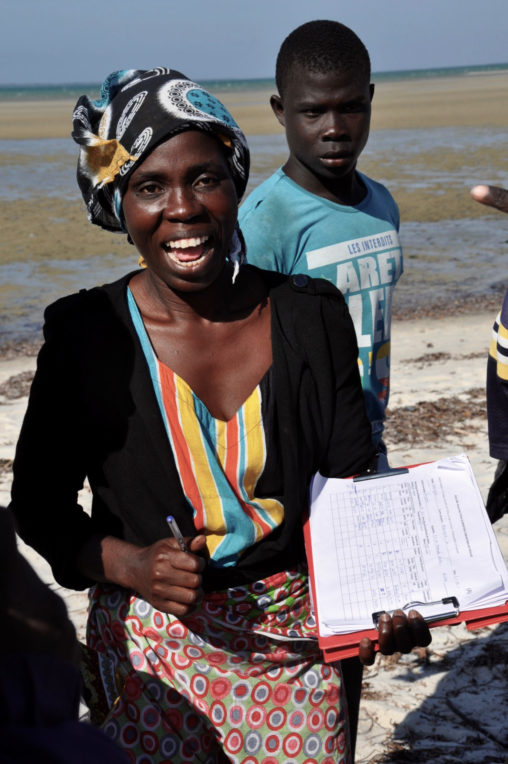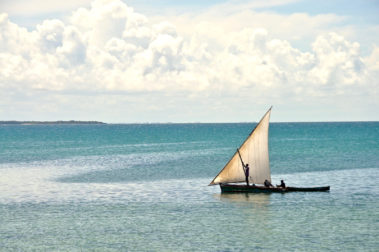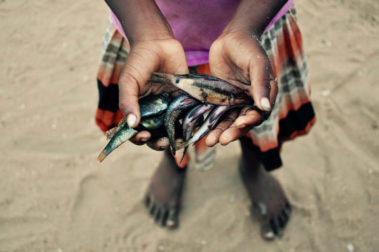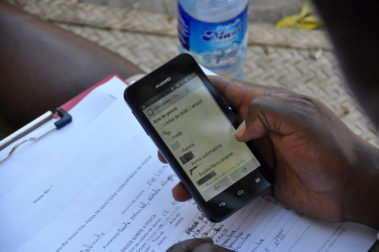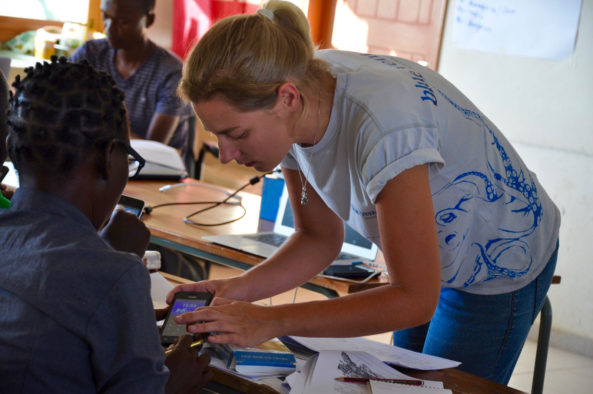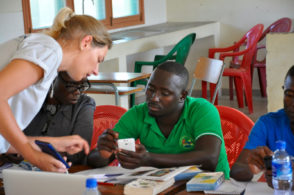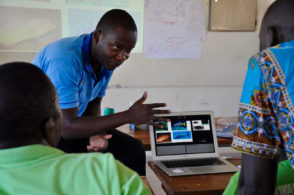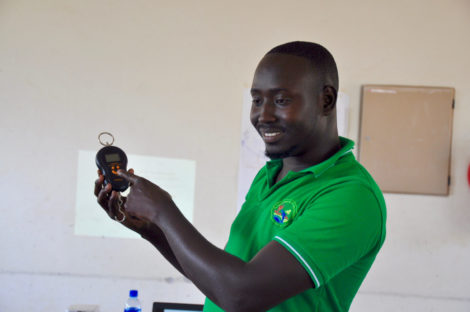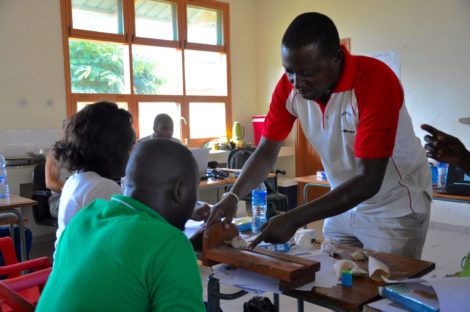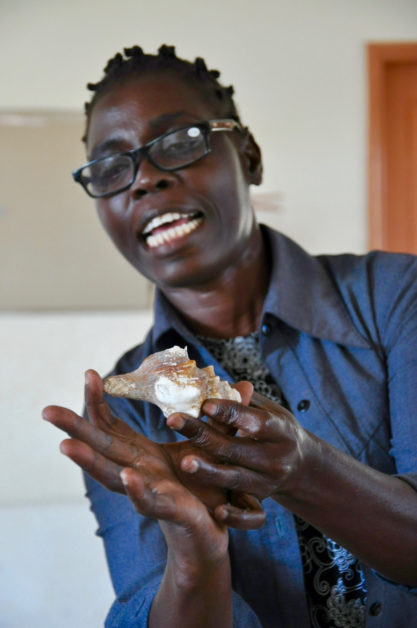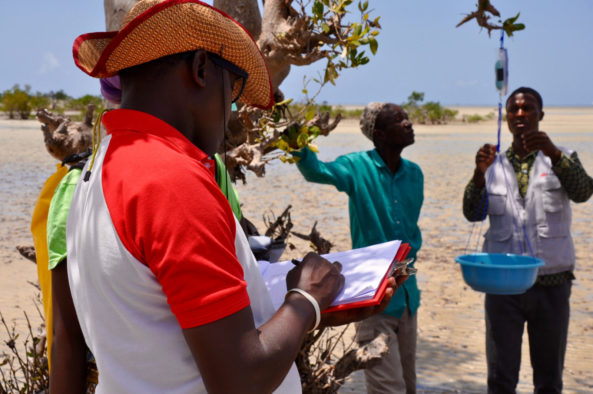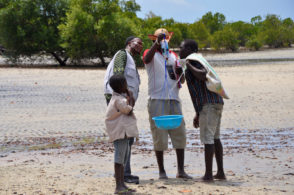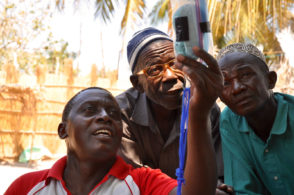Mamudo is surrounded by fishermen, all of them listening attentively.
The fishermen are members of the Community Fisheries Council of Malinde village in northern Mozambique, and Mamudo is the village technician – in charge of training volunteers to be fisheries monitoring assistants. He is in the middle of passing on the knowledge that he recently learnt himself at the technician training workshop.
…and when we are weighing a sea cucumber we’ll have to make sure it’s been out of the water for a good couple of minutes. Does anybody know why?

Mamudo surrounded by fishermen at one of Malinde’s landing sites
In Mozambique, Blue Ventures is supporting the Our Sea Our Life project with our experience in community-based monitoring. The goal of the project is to work collaboratively with coastal communities to support locally led conservation efforts, including the monitoring of their marine resources. This support will facilitate informed decision-making and improved management of their temporary fisheries closures.
The Our Sea Our Life project is targeting six villages in Cabo Delgado, the northernmost province of Mozambique, and our local partner organisation AMA has technicians stationed in each of them. We have been working across these villages, trialling and fine-tuning the methodology and technology for mobile-based fisheries monitoring of economically and environmentally important species, from bony fish to invertebrates.
Together with AMA and CORDIO, we hosted a workshop that brought together all the technicians to recap species identification and monitoring methodology, train them in smartphone use and, most importantly, to prepare them for the responsibility of training their communities.
Through roleplays the technicians practiced how to respectfully interact with fishermen before, during and after monitoring. I was partnered with a technician called Saide during these role plays, and would pretend to be a fisherman while he explained the monitoring process to me:
The data we are collecting will help the Community Fisheries Council understand our fisheries better, enabling them to make informed management decisions. You know how your catches have declined over the past ten years? We are working to stop this trend. We want to make sure our children will have enough fish to feed their own families.
Our technicians also learnt how to prepare trainee data collection assistants for their hands-on role in the monitoring process. Each village has a Community Fisheries Council, a group of dedicated fishermen who take responsibility for their villages’ fisheries, and some of the members volunteered to help with fisheries monitoring. These data collection assistants will be responsible for the hands-on work of weight and size measurements, while the technicians will be the scribes and supervisors.
In the workshop the technicians did a great job of taking turns at roleplaying supervising technicians and data collection assistants, teaching each other how to use and calibrate digital scales, how to measure standard sizes for different species groups, and how to verify that all the values are recorded with the correct units.
Back in the village after the training workshop, the technicians had the opportunity to apply their newly honed teaching skills immediately. Working closely with core members of their villages’ Fisheries Council, they made sure that measurements were being taken accurately.
Sea cucumbers are often filled with water when they are brought to land. After a while they get rid of this water – it looks like they are peeing!” answers Abuba Nvita, a member of Malinde’s Fisheries Council, in response to Mamudo’s question.
“Exactly,” responds Mamudo, “and because we don’t want our weight measurements to be wrong, it’s a good idea to wait a few minutes and make sure that the water has been expelled before weighing the sea cucumber.”
Mamudo is in his element: backed up by the roleplay experience from the training workshop he is confident on all aspects of the methodology, and with the patience of a saint he goes through the details of every little step. His trainee assistants are motivated and curious, they even want to know everything about entering the data into the phone – a step that is initially Mamudo’s responsibility, so that the community members can focus on the more practical aspects of data collection. Data entry needs a little getting used to for users without smartphone experience, but the community members will gradually take over data collection responsibilities until they finally gain full ownership of the whole process.
The Malinde Community Fisheries Council, with the support of Mamudo, are now monitoring fisheries catches at various landing sites around their village. They are collecting valuable information on the fishing pressure on different species, the overall extraction rate, even what the catch will be used for. The results of the monitoring efforts will be analysed, and fed back to the Fisheries Council as a powerful tool for the sustainable management of their marine resources.
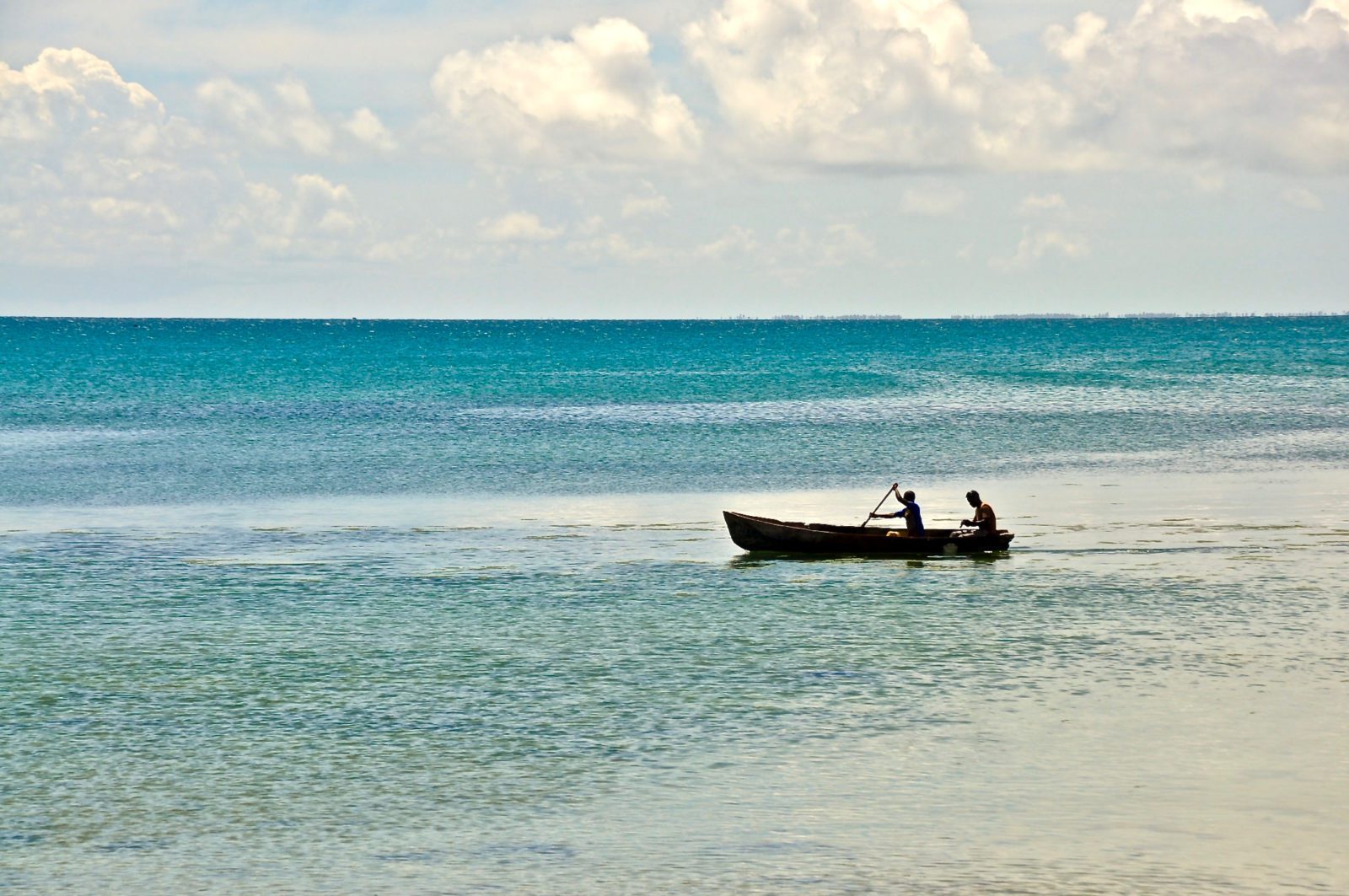
Credit for all the photos in this blog goes to Anouk Neuhaus
The Our Sea Our Life project is funded by the European Union, Darwin Initiative and Fondation Ensemble.
Discover more about Mozambique fishing communities in Cabo Delgado, and on Quifuki Island.


